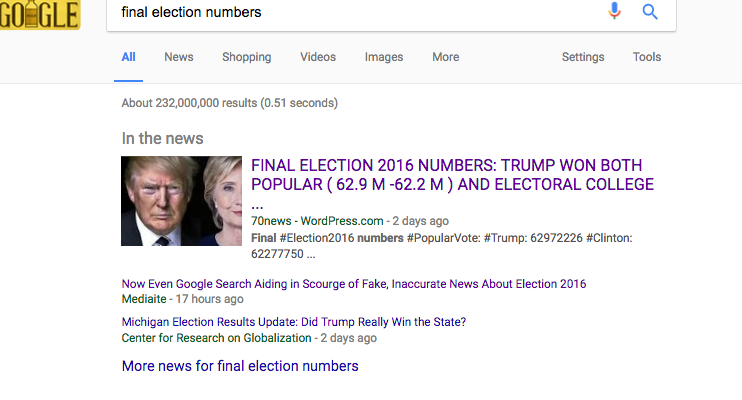Google announced on Monday that its advertising tools will soon be closed off to websites that promote fake news stories.
A spokesperson from Google gave Reuters the following statement:
Moving forward, we will restrict ad serving on pages that misrepresent, misstate, or conceal information about the publisher, the publisher's content, or the primary purpose of the web property.AdSense is Google's advertising program, and what it does is display text ads on any website that is a part of Google's network, which includes millions of sites. Fake news sites are then able to use the ad service to make a profit, even if their news articles are deliberately misinforming the public.
Google's announcement on Monday describes a policy change that would take away a substantial source of money from these fake news sites, which in turn could mean a decline in the overall amount of these websites.
Google already prevents websites displaying pornographic or violent content from using AdSense, so this policy change isn't without precedent.
This news comes at a time when the tech industry has come under fire for supposedly allowing fake news sites to have a substantial impact on the 2016 election.
The CEO of Facebook Mark Zuckerberg thinks otherwise:
Of all the content on Facebook, more than 99 percent of what people see is authentic. Only a very small amount is fake news and hoaxes. The hoaxes that do exist are not limited to one partisan view, or even to politics.As to whether fake news sites actually did have an impact on the election, the jury is still out.
This upcoming policy change for Google will not, however, do anything to solve the problem of fake news sites being promoted in Google search results. Just this weekend, anybody who searched something like "final vote count 2016" would have seen a link from a conspiracy blog at the top of the search results page claiming that Donald Trump won the popular vote. This claim is untrue, and Google has since removed the incorrect news story from the top of the search results page.

Google has not yet expressed any plans to prevent fake news sites from being featured so prominently in search result pages in the future.







